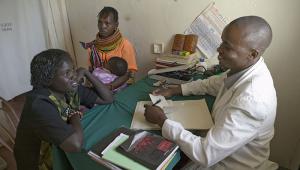While removing housing inadequacies would cost around €295bn, if all the improvements were done at once, this would be repaid within 18 months by savings in healthcare and better social outcomes.
These are the conclusions of a new report by Eurofound, Inadequate housing in Europe: Costs and consequences, commissioned by the European Parliament in 2013. It is based on data from the European Quality of Life Survey (EQLS).
It found that although the standard of housing is generally improving, issues such as heating, insulation, structural problems and cramped conditions continue to affect a significant number of people in EU member states. These issues have a negative impact on health, increase vulnerability to accidents and stifle productivity and economic output.
Also highlighted in the report was a significant difference in housing standards across the continent. Only 3% of EU residents lack basic facilities, such as an indoor flushing toilet, or a bath or shower, but the report said this masked significant national disparities. For example, 22% of Romanians have neither a toilet or a bath or shower.
Structural problems, such as damp, were, however, more widespread, with 12% of EU residents living with damp or leaks, and 9% with rot in windows, doors or floors. Again, there were clear national differences: in Cyprus, more than half of residents reported a structural issue, whereas in Sweden and Austria, the number was around one in ten.
According to the report, the cost of remedying these issues would be around €295bn (at 2011 prices). However, this would be recouped within 18 months, if all the repairs were conducted at once. The savings would be accrued from reduced medical care, and indirect savings such as productivity gains.
The figure does not include non-health related outcomes such as the impact of market values, home insurance, enforcement action, or the potential economic and social capital associated with community development.
The report recommends the improvement of data collection at a national level, to enable interventions to be well planned, and for the strong return-on-investment case for housing improvement to be made clearly.
Eurofound said: “The removal of housing inadequacies is a long-term investment that will pay both short-term and long-term social and economic dividends. The positive outcomes are not limited to health, where savings on healthcare provision would be some €9bn in the first year.”
Apart from the economic benefits, this would stimulate local economies, improve social protection of groups in difficulties, integrate migrants and foster social mobility, particularly for Europe’s most disadvantaged children.













